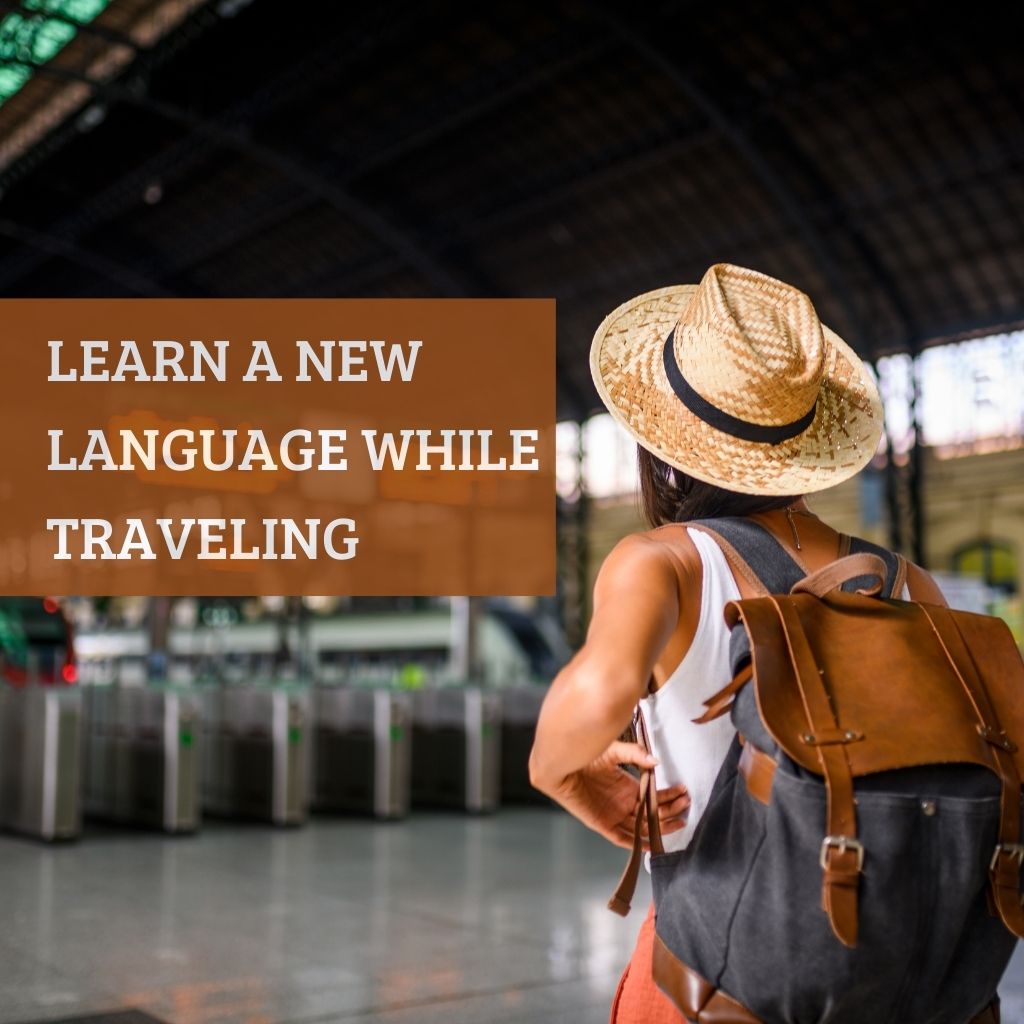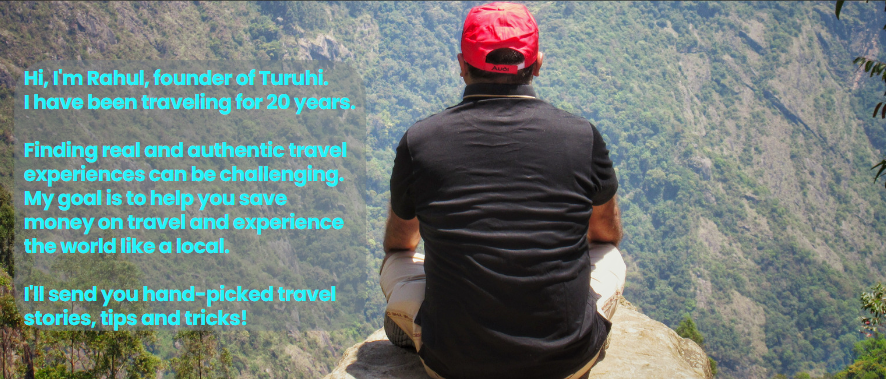Did you know that learning a new language can be a fun and rewarding experience? Research shows that learning a new language can improve your memory, problem-solving skills, and even your ability to think creatively. Not to mention, it’s a great way to connect with people from other cultures.
But learning a new language can also be challenging. If you’re planning to travel to various destinations where they speak languages you’re not familiar with, it’s important to be prepared. Here are 5 fun and rewarding ways to learn a new language while traveling:

1. Find a language exchange partner
One of the best ways to learn a new language is to practice it with a native speaker. A great way to do this is to find a language exchange partner. This is someone who speaks your target language and wants to learn your native language. Traditional ways to find language exchange partners are through online directories or by asking around at local cafes, libraries, and community centers. However, there are alternate, simple and innovative ways to do that:
1.1. Websites and mobile apps
There are several websites and mobile apps that allow you to find language exchange partners. These are a great way to connect with people from all over the world, and they offer several benefits:
How it works:
To find a language exchange partner, you first need to sign up for an account on one of the websites or mobile apps listed below. Once you have created an account, you can search for partners based on your location, interests, and language skills. You can then contact potential partners and arrange to meet up with them for language exchange sessions. You can opt between free and paid plans.
Some of the most popular websites and mobile apps for finding language exchange partners include:
1.2. Meetups
Another great way to connect with people who speak your target language is to attend a language meetup group. These groups are usually composed of people who want to learn your native language and people who want to learn your target language. Meetup groups are a great way to practice speaking and listening in a supportive and fun environment. You can find meetup groups in most major cities.
1.3. Communities on social media
Joining a language exchange community on social media is a great way to find people who are interested in learning the same language as you. These communities are usually very supportive and welcoming, and they offer a variety of benefits, including:
- Opportunities to practice your target language with native speakers
- A variety of learning materials, such as articles, videos, and audio files
- A supportive community of language learners to help you along your learning journey
Some of the most popular social media communities for language learners include:
- The Fluent in 3 Months Challenge Facebook group
- The Language Learning subReddits.
2. Learn through immersion by staying in a place where the language is spoken
If you’re looking to learn a new language quickly and effectively, one of the best ways to do so is to immerse yourself in the language. This means staying in a place where the locals speak the language natively. Immersion can be an incredibly effective way to learn a new language, as it allows you to use the language in everyday situations and get immediate feedback from native speakers.
For many travelers, the best way to learn a new language is to travel to a country where it is spoken and immerse yourself in the culture. This may seem daunting at first, but there are several advantages to full immersion. Whenever you need to rent a car, take a taxi, or book a hotel during your stay, you will be forced to use the native language. The more you take these opportunities to practice, the more comfortable you will be.
By hearing the language spoken in different ways, you will develop a better understanding of its grammar and vocabulary. Finally, immersing yourself in the culture will help you to gain a deeper understanding of its values and customs. Learning a foreign language is an incredibly rewarding experience, and full immersion is often the best way to achieve fluency.
3. Try to learn the most common words and phrases first
Before you go, it’s important to learn some basic phrases in the local language. This will help you get by in everyday situations and avoid feeling lost or confused. When you first begin traveling, it is likely your language skills will be rudimentary. Use common words and simple phrases to start, and then build up from there. Try simple conversations, and then add any words and phrases you learn along the way. Try to learn as many words and phrases that you are going to use frequently. Locals understand that you will not have a complete vocabulary if you are a tourist. With a little patience and practice, you’ll be surprised at how quickly your language skills improve.
There are several ways to learn common words and phrases:
- Download a mobile app or visit a website that offers translations of common phrases
- Buy a phrasebook or dictionary
- Listen to audio recordings of common phrases
4. Practice speaking the language as often as possible
Learning a new language can be both challenging and rewarding, but it is often difficult to find opportunities to practice speaking. One of the best ways to improve your language skills is to find native speakers and practice speaking as often as possible. This can be done through language exchange programs, online forums, or even just meeting up with friends who speak the language. By practicing speaking regularly, you will quickly improve your fluency and confidence in using the language. You can find opportunities to practice by:
- Joining a conversation group or club
- Taking a language class
- Talking to friends and family members who speak the language
- Speak with yourself in the mirror
5. Use technology to your advantage
Technology has come a long way in recent years, and there are now several tools that can be used to assist language learners. Perhaps the most obvious is the Internet, which provides a wealth of resources for anyone who wants to learn a new language. There are also several language-learning and translation apps available, many of which are designed to help users build basic vocabulary and grammar skills. In addition, there are a variety of online courses and programs that can be used to supplement in-person instruction. Several apps and programs can assist you in your learning journey, such as:
- Google Translate – This app can translate text into more than 100 languages. This is a handy tool when you can’t pronounce a word or phrase. Just show the translation in the app and you are good to go.
- Google Lens – It is an amazing app that can be used to translate signboards and other hoardings. Simply open the Google lens app and point your camera at the text. It will automatically translate it for you. This is a great way to learn new languages while you are on the go.
- Babbel – This language learning app offers courses in 14 different languages. It is designed to help users build basic vocabulary and grammar skills.
- Duolingo – This app offers free lessons in more than 30 languages. It is designed to help users learn a new language by gamifying the learning process.
Don’t be afraid to make mistakes – it’s part of the learning process!
Learning a new language can be daunting, but it’s important to remember that everyone makes mistakes when they’re first starting. It’s part of the learning process! The important thing is to keep practicing and not get discouraged. If you make a mistake, just laugh it off and try again.
Native speakers make mistakes too – it’s all part of life!





This is a unique article and it will be very helpful to all travel aficionados so thank you for this nice article on different ways to learn new language.
Thank you Anand, appreciate your feedback.